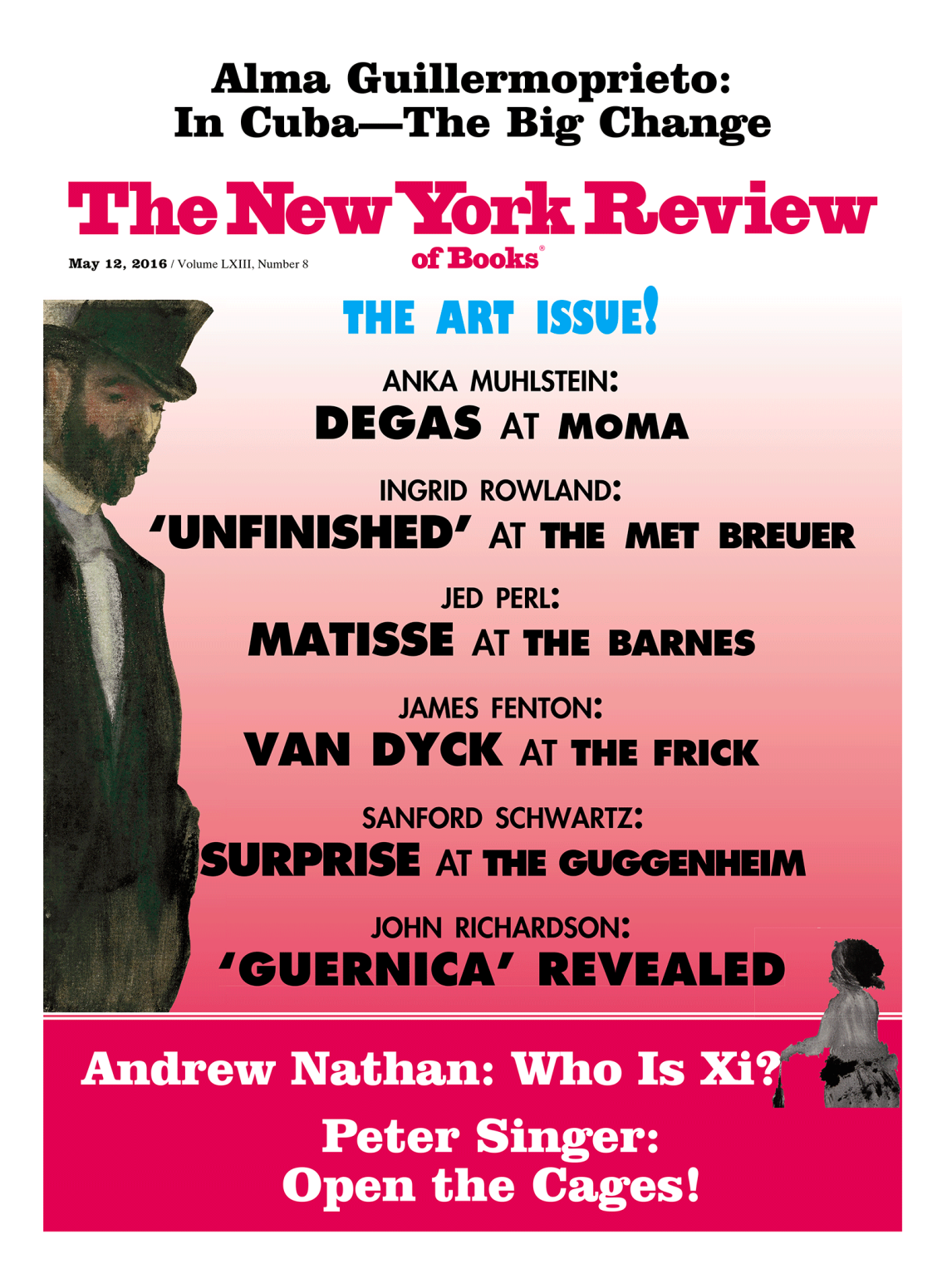In response to:
On the Works and Notes of Charles Rosen from the April 21, 2016 issue
To the Editors:
In a letter posted on the New York Review website [“On the Works and Notes of Charles Rosen,” nybooks.com, April 21], Donald Manildi makes a number of points about my review of Charles Rosen’s Complete Columbia and Epic Album Collection [NYR, April 7]. He notes that Rosen was not the first pianist to record all twelve Debussy Études and that there were eighteen recordings of Ravel’s Gaspard de la Nuit before Rosen’s in 1959, not two, as I wrote. Unfortunately his letter did not reach me while I have been traveling in China so I was unable to answer it until now.
Mr. Manildi ably oversees the world’s largest collection of historical piano recordings and associated documents. For many questions the International Piano Archives at Maryland (IPAM) is not only the most authoritative source but the only one. All the more regrettable that, after fifty years of steady growth and a secure home at the University of Maryland, the most basic access to it remains—in an era when the most insular European archives are aggressively cataloging and placing their collections online—by walk-in during regular business hours. An online catalog is a worthy project the NEH should have seeded long ago.
I sent IPAM two unanswered e-mails from China (at a time, we later learned, that the Chinese government had been heavily disrupting e-mail traffic) that inquired not only about early recordings of Debussy’s Études and Ravel’s Gaspard but, more importantly, whether any might have been easily available to a young New York pianist attending Princeton during the late 1940s, when Rosen was already playing both works. I was far more interested in potential influence than “firstness.”
It is highly unlikely that an eleven-year-old Rosen knew an English Decca recording of Debussy’s Études. Similarly, the flock of pianists on Mr. Manildi’s Ravel list (including the composer’s inner circle) are largely Europeans who recorded on labels he would not have encountered, and who did so after Rosen had formed his own conception; only a handful seem to have recorded for established American labels. My larger point—that Rosen’s reading was very much his own—is only reinforced by the smattering of Gaspard performances recently made available online.
Robert Winter
Department of Music University of California, Los Angeles
from Guangzhou, China


